New Generation Dairy Embraces Sustainable Practices to Protect Farmland and the Planet

The Rexing family incorporates sustainable practices and new technology into the daily operations at New Generation Dairy and hopes these advances will attract the next generation of farmers. Photo credit: Nathan Lambrecht
Fourth-generation dairy farmer Brian Rexing knows his success depends on the well-being of his herd and the health of the environment, focusing on these aspects within his New Generation Dairy Farm operation.
“We always have to keep the environment in mind,” Rexing says. “How we treat the land is how we make our living. I’ve always said I want to put the land back in as good or better shape than how I got it.”
Rexing has been using sustainable management practices since he founded New Generation Dairy in 2008, and his commitment to the environment is evident on every acre of the Owensville farm.

Photo credit: Nathan Lambrecht
In addition to using digital ear tags to collect data on the herd of 1,200 Holsteins to track information about their health, diet and breeding status, Rexing conducts soil tests on the 3,500-acre farm to ensure he’s not overusing fertilizers and other inputs.
He also recycles all the sand used in the free-stall barn. The system uses water to flush waste out of the barn. As the sand and manure travel along a 200-foot-long recycling lane, the sand drops out and the manure is carried through. All the used sand is piled up and Rexing turns the piles several times to speed up the drying process. After three weeks, the sand is dry and can be reused as bedding.
“We just tested our sand, and the bacteria in our recycled sand is just as clean as the sand we’re buying,” Rexing says. “It’s just as good as buying a fresh new load of sand.”

Photo credit: Nathan Lambrecht
The practice is not only good for the environment, it also helps the bottom line, too. After implementing the recycling program, Rexing transitioned from purchasing up to three truckloads of sand every week to purchasing just one truckload per month. The cows love it as well.
“Sand is the perfect bedding for cattle,” Rexing says. “It stays so much cleaner [than other types of bedding] and provides a lot of traction in the walkways.”
See more: Traders Point Creamery Delivers Delicious Dairy
Sustainable Solutions

Photo credit: Nathan Lambrecht
In 2021, Rexing purchased a meat processing facility powered by solar energy. He loved the simplicity of the system. “It’s low maintenance, once it’s installed, and it’s pretty self-sufficient,” he explains. He recently installed a new roof on the dairy and is considering adding solar panels on that building, too.
Rexing is also exploring opportunities to add new green initiatives.
In partnership with Vanguard Renewables, a national provider of “organics-to-renewables” energy projects, Rexing is participating in a six-month feasibility study to determine whether New Generation Dairy is a suitable site for a digester that would turn manure and local food waste into compressed natural gas.

Photo credit: Patton Photo
“It’s a nice fit for our operation,” he says. “It’s hard to believe that a byproduct from milking cows could be used as a renewable energy source.”
These creative approaches are all part of operating a farm that prioritizes sustainable business practices and good environmental stewardship.
“Our margins are super tight, and we’ve got to be cost-efficient and be mindful of what we spend and how we spend it,” Rexing says. “We have to be super efficient.”
These efforts have also helped Rexing, who operates the farm with his wife, Ranell, earn the Indiana Dairy Producer of the Year award – but he’s not doing it for the accolades. Instead, he hopes sustainable innovations not only bolster herd health and provide environmental benefits but also help attract a new generation of dairy farmers.
“When I was in high school, farming wasn’t cool,” he says. “But farming has become cool because of the technologies we’ve embraced.”

Photo credit: Nathan Lambrecht
See more: Indiana Dairy Stats





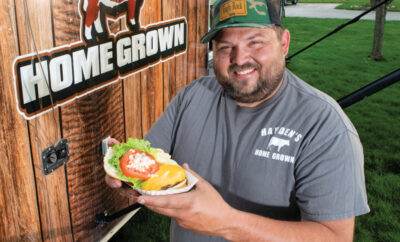
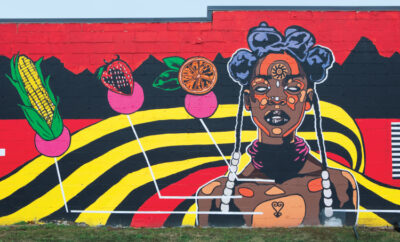

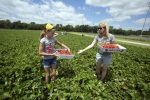
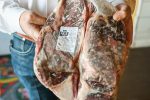
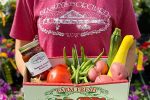


 My Indiana Home is produced for Indiana Farm Bureau members. Our mission is to connect you with the food you eat, the Indiana farmers who grow it and a rural lifestyle that is uniquely Hoosier.
My Indiana Home is produced for Indiana Farm Bureau members. Our mission is to connect you with the food you eat, the Indiana farmers who grow it and a rural lifestyle that is uniquely Hoosier.
Leave a Comment